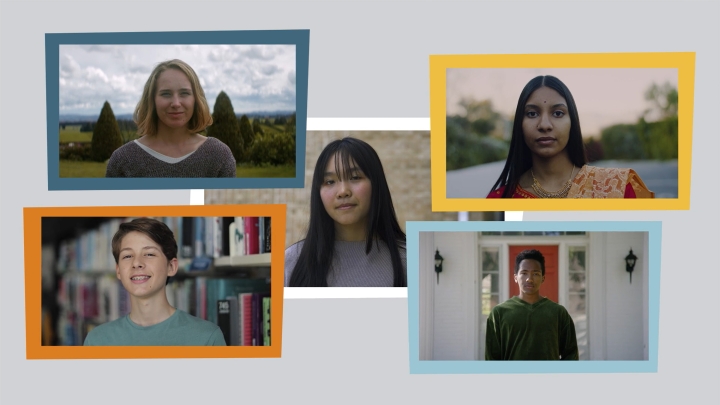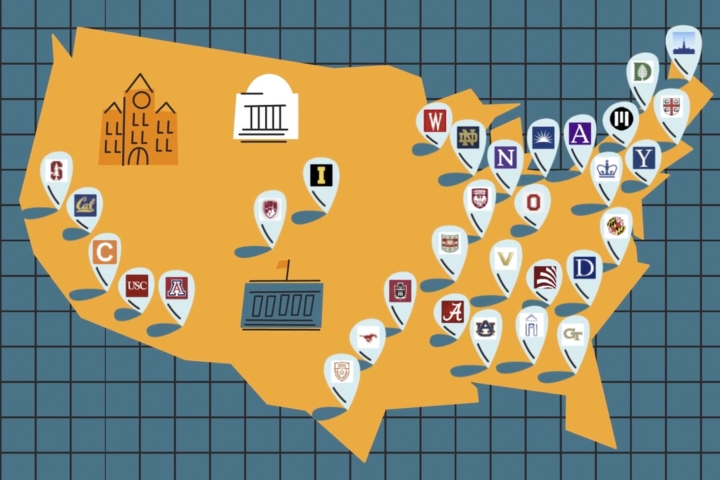Dartmouth has joined the Small Town and Rural Students College Network, known as STARS, a national network of higher education institutions that supports high school students from rural communities in navigating the college search.
The move is part of Dartmouth’s ongoing commitment to educating the most promising students, regardless of their location, background, or financial means, says Lee Coffin, vice president and dean of admissions and financial aid.
“As the rural Ivy, Dartmouth has a long connection to rural communities—including tribal and Indigenous communities—and an organic appreciation for the authentic voices that emerge from those places,” says Coffin. “The opportunity to join the STARS Network is a welcome expansion of our recruitment work in this space.”
The STARS Network, led by the University of Chicago and Vanderbilt University and headquartered at the University of Chicago, was launched in 2023 to create an infrastructure for top colleges and universities to address some of the common barriers to attending college that rural students frequently face. The network provides students expanded access to admissions officers, resources for summer academic programs, funding for college visits, and more.

Students in under-resourced rural communities are less likely to have opportunities to meet representatives from colleges, encounter recruitment literature, or attend campus events, and may not have information on how to access financial aid resources that could make college affordable to them, according to a STARS news release (PDF). Rural high school graduates are only half as likely as their urban and suburban peers to graduate from a selective college or university, and many who do attend college are the first members of their families to do so.
Dartmouth plans to combine the resources and guidance of the STARS Network with its longstanding dedication to reducing these barriers for rural students, Coffin says.
Initiatives could include enhancing and expanding the Dartmouth Bound and Indigenous Fly-In programs, which seek to increase the pipeline of competitive candidates from underrepresented and underserved backgrounds by bringing rising high school seniors from these communities to campus; expanding funding opportunities to attend on-campus Dimensions programs for admitted students; creating a cohort of rural student ambassadors to reach rural audiences; and expanding Dartmouth’s direct outreach to high schools and school counselors in rural and small-town communities.
Dartmouth recently hosted a three-day event in which nearly 20 school counselors from rural communities across the country provided input and guidance on the institution’s rural recruitment efforts.
Rural students bring valuable perspectives to campus, and are well-positioned to use what they learn at Dartmouth to help address needs back home. For instance, climate system science major Gavin Fry ’25 is studying the human impacts of extreme weather on communities like the small Missouri town where he was raised. He hopes to eventually become a policy leader with the National Weather Service.
“The kinds of settings where I grew up—areas densely populated with mobile homes, locations where there’s a lot of poverty, where English might not be the first language—are places where it’s hard to take the necessary precautions when it comes to severe weather such as tornadoes,” he says.
Likewise, for Ramsey Ash ’24, who grew up in a small community in West Virginia, a Dartmouth course on medical anthropology led him to “become infatuated with the humanistic approach to medicine as it relates to health challenges. That class opened my eyes to the possibility of becoming a doctor.” He wrote his senior thesis on vaccine hesitancy in rural areas.
Dartmouth is one of 16 colleges and universities—along with Amherst College, Auburn University, Duke University, Georgia Institute of Technology, Southern Methodist University, Spelman College, Stanford University, University of Alabama, University of Arizona, University of Arkansas, University of California Berkeley, University of Denver, University of Notre Dame, University of South Carolina, and The University of Texas at Austin—to join the STARS Network in the organization’s second year, bringing the number of STARS member schools to 32.
Founding members are Brown University, California Institute of Technology, Case Western Reserve University, Colby College, Columbia University, Massachusetts Institute of Technology, Northwestern University, The Ohio State University, University of Chicago, University of Iowa, University of Maryland, University of Southern California, University of Wisconsin-Madison, Vanderbilt, Washington University in St. Louis, and Yale University.
Institutions in the STARS Network in its inaugural year directly engaged with more than 700,000 students from rural areas and small towns.
“It is so inspiring to see the ever-growing ecosystem of partnerships, funding and institutional commitments to ensure that rural and small-town students have the widest array of educational choices, and that our institutions can benefit from all they have to contribute,” said STARS Co-Chair Douglas Christiansen, vice provost for university enrollment affairs and dean of admissions and financial aid at Vanderbilt.


